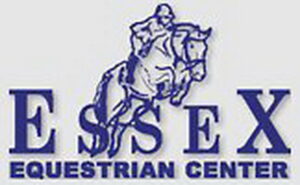The Essex Equestrian Center in West Orange, N.J., where thousands of riders were introduced to horses over the decades, is closing this month.
The stable, built in the early Twentieth Century, has been known by several names over the years, including the Woodland Riding Club, the Montclair Riding Club and the Suburban Essex Equestrian Center.
It also has been run by many different people, among them William Dunn, Marge Francis, Ben Purifoy, Marvin Ruddy and for the last 20 years, the Hall family.
Those who fondly remember their years riding at the facility are wondering what will happen to the property. Larry Hall did not respond to an email request for comment.
Joe Fagan, a spokesman for the township of West Orange, said the Essex Equestrian Center is in an R-1 zone. The minimum lot size is 80,000 square feet “per lot for potential single-family homes. It does not have to be used exclusively for recreational use. There currently are no pending applications for this property.”
In a statement, the Halls said, “We have been the starting place for kids and adults alike to find a passion and form irreplaceable bonds with other riders, trainers, and horses. From the very start of meeting the riders, pairing them together with our amazing horses, and watching the breath-taking growth and success they all achieve, has made our hearts so full. It breaks our hearts to announce that Essex Equestrian Center will be closing its doors for good on Monday December 19th.”
Word of the closing prompted an outpouring of memories from those whose lives had been touched by their time at the unique stable in a densely developed area.
Its location on Woodland Avenue in the heart of urbanized Essex County, just a few miles from Newark, offered an opportunity for people who didn’t live near farms to take their first riding lessons, then go on to improve their skills.
Stephanie Siegel, whose mother, Vicki Siegel, managed the facility for a few years in the 1970s when it was Suburban Essex, recalls riding with her friends to Pal’s Cabin restaurant a few blocks away. While one person held the horses, the others went in to get a take-out order they could enjoy when they were back at the stable.
Limited space meant there was, as she recalled, just one paddock for 100 horses, and access for trail riders to nearby Eagle Rock Reservation came through a concrete tunnel.
Starting in 1981, Ann Sullivan Scher spent nine years at Suburban Essex as a trainer and manager who imported horses from Europe, working with Olympian and former U.S. show jumping team captain Frank Chapot. The stable’s location helped make it very popular.
“We had 40 to 60 boarders at any one time,” she said.
Kim Hewitt Bonstein rode in shows there as a junior in the mid-1970s and as a trainer, gave lessons at the facility during the winter in the days when indoor rings were few and far between in New Jersey, except for private stables.
There was plenty of demand for the ring on cold days, so several lessons would be going on at once and self-defense was foremost in the mind of the trainers.
“We would grab jump standards to stand behind them so you wouldn’t get run over,” she chuckled.
Kim met opera star Luciano Pavarotti, and taught his daughter there. She remembered her trepidation one day as the hefty tenor set out for a trail ride on a questionable mount.
“He’s got two or three bandannas around his neck. He said, `Nothing should be happening to my throat,’” but as she noted, on the horse he was riding, that would be the least of his worries. Happily, he came back in one piece.
As a teen, John Walker III took lessons at the stable with noted instructor Walter White, and his mother, Maryl Walker, ran the Girls Mounted Troop there. The uniformed troop members were part of the Junior Cavalry of America that included the Thomas School of Horsemanship on Long Island and the New Canaan Mounted Troop in Connecticut. The Junior Essex Troop of Cavalry had a farm in West Orange, but it was sold in the 1970s, following the demise of several other stables in the area during an earlier era.
On Facebook, Morgan Jenkins called EEC “my favorite place in the whole world growing up and still holds a special spot in my heart. I remember my first ever lesson on Lots of Dots, school shows, lessons, the sound of melting snow falling in sheets from the roof on a sunny winter day and spending every free weekend moment there with friends as one of the resident barn rats.”
Bridget Eklund Carlson termed the closure “Just devastating…this place and the people here are so special, with so much history… a huge loss to the community and suburban kids who will no longer have a place to connect with horses.”
EEC offered everything from camp to showing and an Interscholastic Equestrian Association team. Lola Fennimore, managing director of Rocking Horse Rehab, which is based at the stable, said her equine therapy organization will be moving after Jan. 1, but she could not reveal the new location at this time.
The Halls’ statement emphasized that, “All of our horses will be rehomed to only the best of homes and our older herd of ponies and horses will be going to retirement to enjoy a big grass field that they so deserve.
“Although this era is ending, we look forward to following and watching all the success of our trainers, staff, riders, horses, and lifelong friends that we have met over the years.”
The family thanked its staff and clients, while saying, “We owe the utmost of thanks and love first and foremost to our cherished horses, as we would not be able to make Essex such a special place without them. We owe them everything for all they have done for so many of us, what they have taught us in and out of the saddle, and for the love and healing they provide us every day.”




